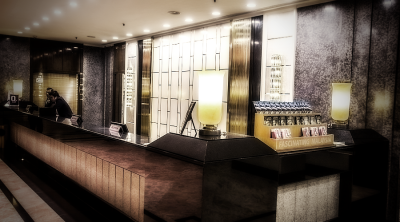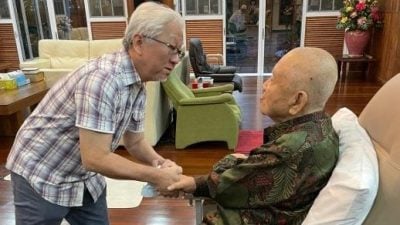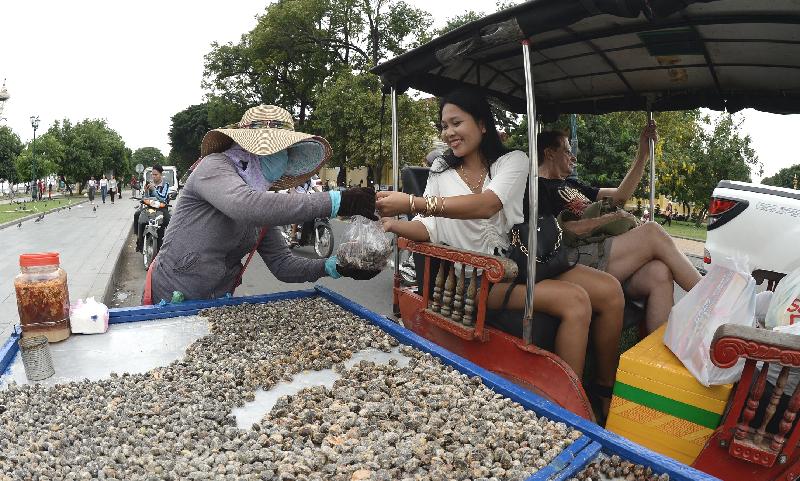
"When I first came to Cambodia, there was a day I had breakfast with my wife while delivering goods to a customer, when a man came in and pointed his gun at me, saying: You want to do business here? Do you believe I can blow up your head."
The man who threatened Lee Peck Kiong was actually a local business rival. He did not fire but hit Lee's head with the handle of the gun.
"We were totally terrified and indeed thought of quitting!"
Although he later managed to reconcile with the rival and the weapon control problem of the country has since improved, Lee's fear has never actually left him.
When Malaysia was badly hit by the regional financial crisis in 1999, Lee made up his mind to come to Cambodia to look for job prospects.
He had served in Canada Bank and Cambodia Sin Chew Daily before he was offered a GM post with a hardware company seeking business expansion in Cambodia.
"Cambodia was very poor at that time and everything was in dearth but it was also relatively easy to start a business. By comparison, you need a much bigger capital to start a business in Cambodia today.
"Although we later did not come across any more threats, we have tried to keep a very low profile and advertise only sparingly. We also don't cut our prices too much.
"If someone tries to counterfeit our products, we would just keep an eye shut. We don't want to get ourselves into any trouble."
Phenomenal growth
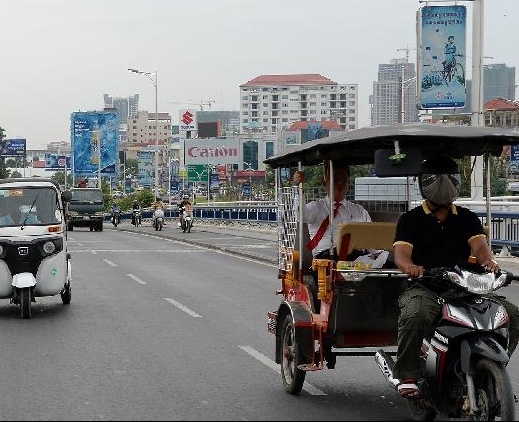
Lee came to Cambodia with his wife Tee Hsin Wey, who once worked in Cambodia Sin Chew Daily, and the couple later had five children here.
Tee told Sin Chew Daily, "I decided to resign after giving birth to our eldest daughter because we couldn't find someone we could trust to take care of the child."
The couple have sent their children to the international school to ensure they have the best education possible.
Despite the fall of the Khmer Rouge regime in 1979, political situation in the country was still very unstable until the first general election was held in 1993, and the country's economy began to take off.
Lee said the economy had grown very rapidly during his 20 years in the country.
"The development here is shocking. While Malaysia is more or less saturated now, this country has lots of potentials to grow very rapidly."
Cambodia's per capita GDP was US$1,510 in 2018, the second lowest among Asean countries. Although the country's per capita GDP is far below Malaysia's US$11,240, its development has been incredible over the past ten years.
The country grew by an average annual rate in excess of 8% for ten consecutive years beginning 1998 to become one of the world's fastest growing emerging economies. The World Bank has predicted that the country will join the league of upper middle income countries by 2030.
Meanwhile, Chinese Cambodians who left the country during the war are returning to the country in recent years and they are prepared to settle down here permanently.
Koy Le San, a local Chinese businessman who studied in Singapore since he was very young, returned to Cambodia about ten years ago and has witnessed the dramatic changes taking place in his native homeland.
"When I was very young I had this thought that I would never want to come back here. I wanted to go overseas.
"But now I am back here again and witnessing the rapid development of this country.
"In the past I would never tell people I was a Cambodian. I would just say I was Singaporean instead. But now, I feel proud to be Cambodian!"
Rapid transformation
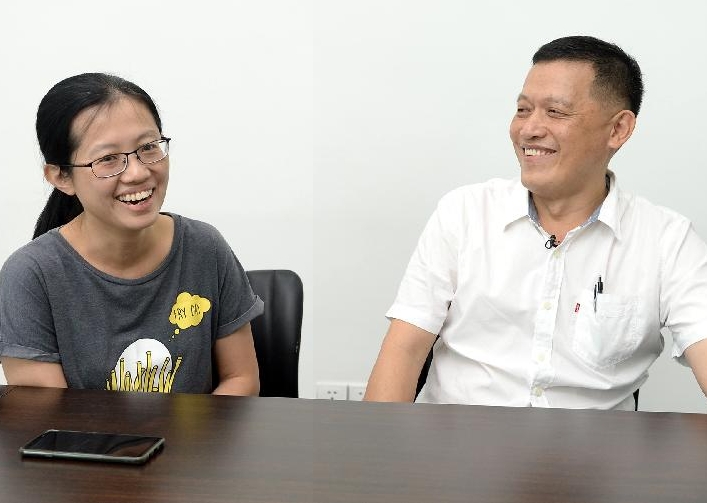
Malaysian real estate businessman David Yap said of the rapid development in Cambodia.
"Here we can do what our parents could not do back in Malaysia, such as to build a highrise tower in the city center."
He came to Phnom Penh several years ago at the invitation of a real estate friend Jack Yap, and was shocked to find that this country was no longer the backward war-torn country many would think.
"Cambodia today is like Malaysia in the 1960s, but I believe it will take the country five more years to become like Malaysia in the 1980s."
He said the Cambodian government has been working very hard to create a business-friendly environment for foreign investors, such as allowing 100% foreign ownership that has resulted in an unprecedented influx of investors to the capital city Phnom Penh.
Other than a conducive business environment, Cambodia also boasts a very young and diligent workforce, stable government, a much improved financial system and a dollar-based economy which translates into currency stability.
"All the highrise buildings you see in Phnom Penh today have been built over the past five years. Anyone who came here five years ago would feel that this country is a complete stranger to him now."
He also feels that this is the best time for Malaysians to expand their businesses into Cambodia.
Jack Yap's property company focuses on the construction of affordable housing in Phnom Penh.
Local partners a prerequisite
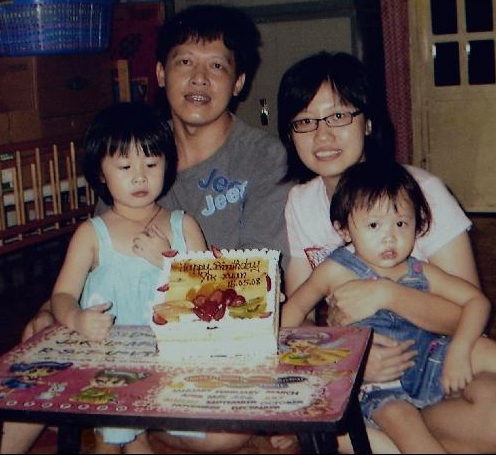
Many Cambodians don't speak English and getting a local partner is therefore absolutely important, and the Asean chamber of commerce and industry serves an excellent business-matching platform for foreign businessmen seeking suitable local partners.
Wilson Soo. a senior consultant with a consultancy firm in Phnom Penh explained that although the Cambodian government allows 100% foreign ownership in a business, foreigners are not allowed to purchase local properties. As such, if a foreign company intends to acquire a property, it will have to work with a local partner.
"I don't think you can do business here without a reliable local business partner."
Soo's consultancy firm is helping foreign investors keen to do business in Cambodia to find reliable local partners and understand the local market demands as well as rules and regulations.
Foreign businessmen will tell you that while Cambodia boasts a multitude of entertainment outlets, including 163 licensed casinos and dirt cheap beers, you have to remain highly self-disciplined if you do not want to create trouble for yourself.
"If you spend too much time on entertainment, you will not have time to take care of your business," they warned.
ADVERTISEMENT
ADVERTISEMENT








